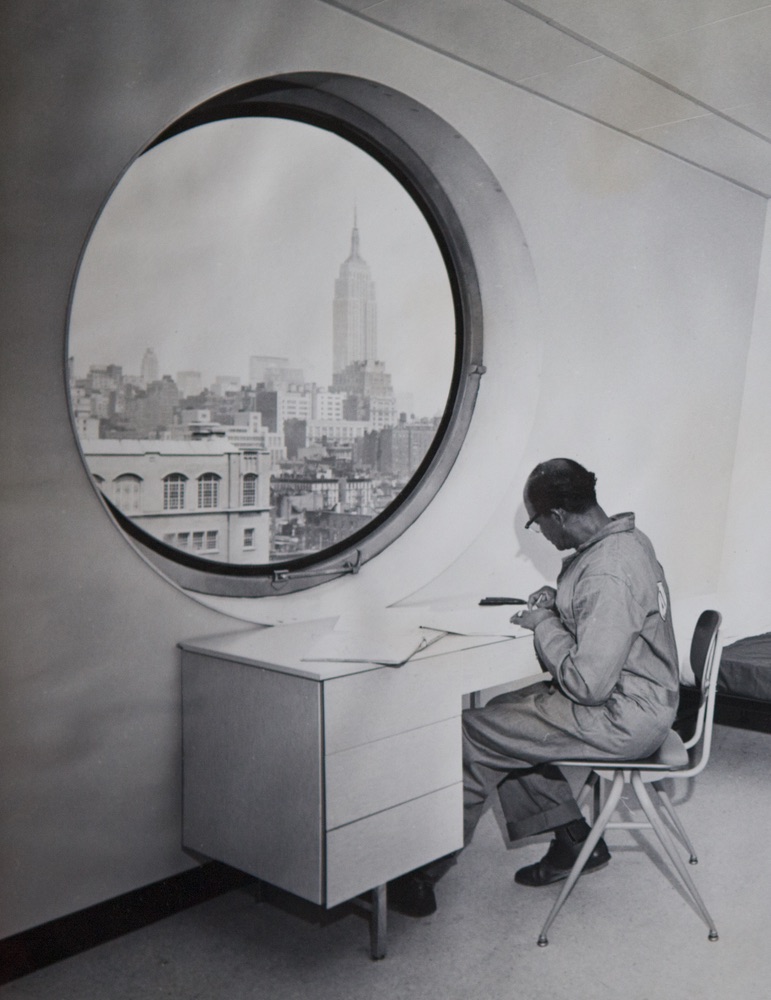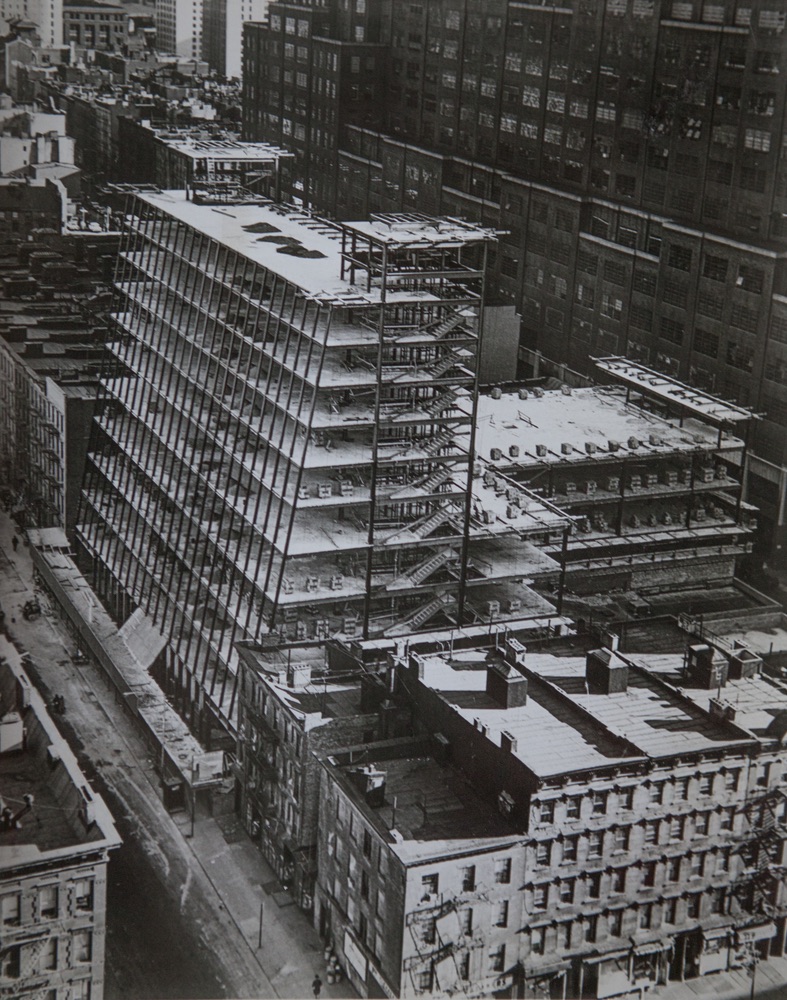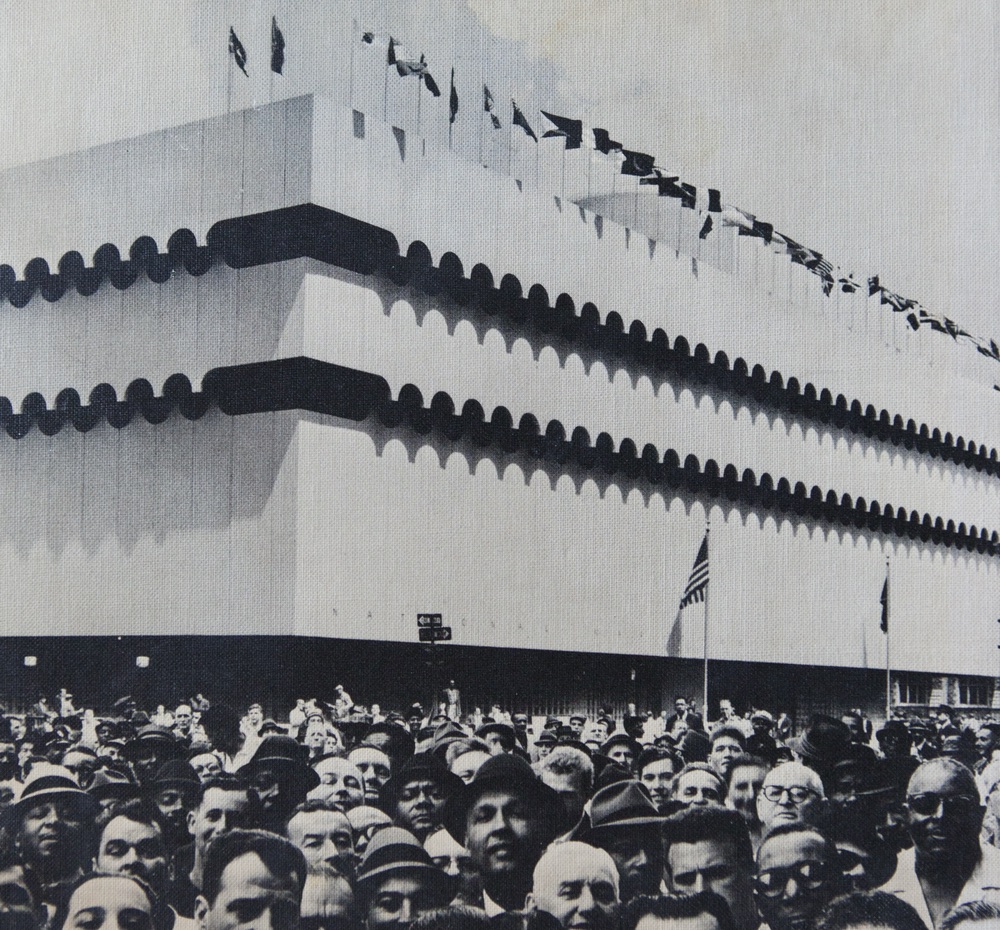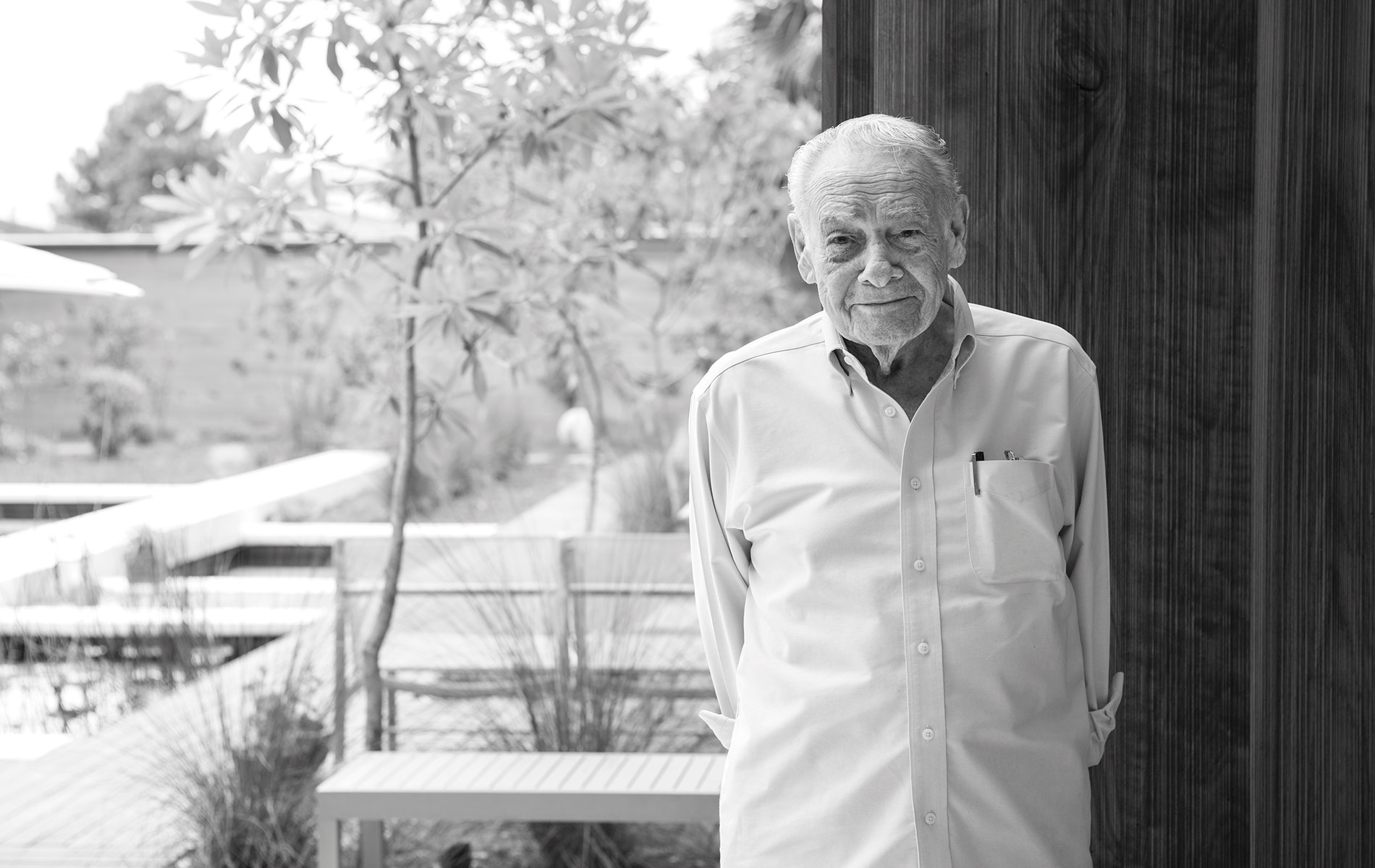
vie-magazine-albert-ledner-hero
Albert Ledner
A Modernist Legacy
Documentary Honors the Work of New Orleans Architect
By Jordan Staggs | Photography courtesy of the Ledner family
This year, a treasure of modern architecture will be forever memorialized in a new documentary, whose working title is Designing Life: The Modernist Legacy of Albert C. Ledner. The film explores the work of Ledner, a student of Frank Lloyd Wright, who became one of the American South’s first modern architects and could certainly be dubbed the Frank Lloyd Wright of New Orleans. The film looks at an important time in the development of American architectural history during the postwar era and tells Ledner’s personal story, which is described as “a life well lived.” Ledner turned ninety-three this past January and has two new projects in the works.
Ledner’s daughter, Catherine, and New York–based photographer and filmmaker Roy Beeson have spearheaded the creation of the documentary with great support from fans around the world. Its Kickstarter crowdfunding campaign raised over $40,000 last December to help with final production. Catherine and Beeson share their thoughts and excitement about the project through updates on the campaign’s page and expect the film to be completed this July.
“The film uses narration from Dad, as well as many interviews with architects and homeowners to tell the story,” Catherine says. “I grew up in my father’s most personal creation—his own home.” Although she spent her childhood quite literally immersed in a paradise for those who enjoy the modernist style of architecture, Catherine admits she took it for granted at the time. Now following her father’s artistic footsteps as a photographer and filmmaker, she has set out with Beeson, her cousin, to share her father’s story and the importance of the modernist movement in architectural history.
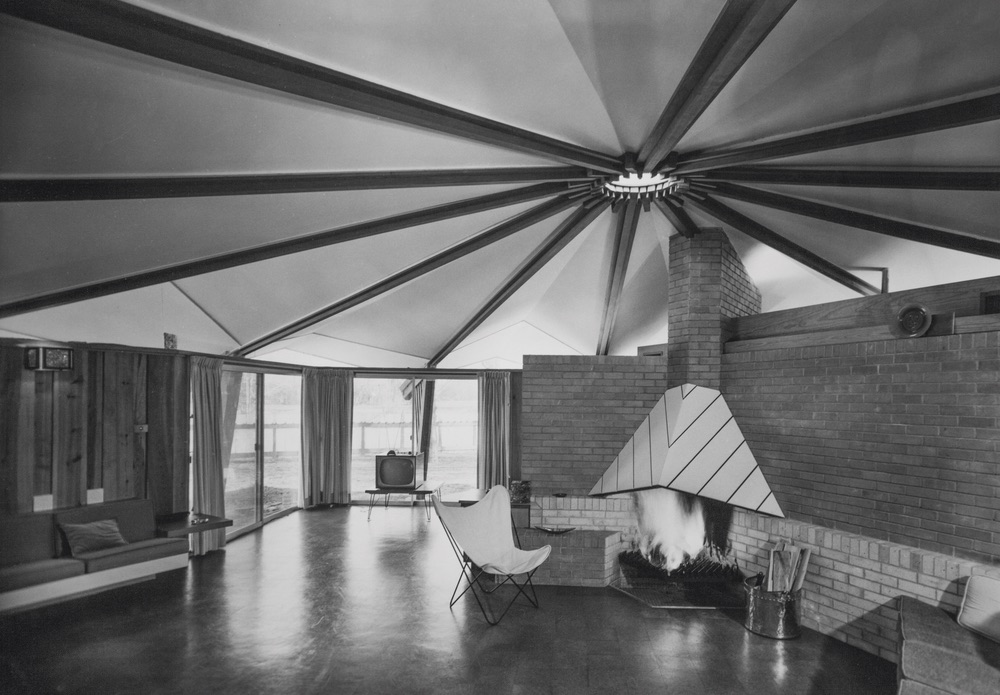
The Ledner House in New Orleans, Louisiana, circa 1957
Modernism hit its peak in the mid-1900s and is widely considered the most important architectural philosophy of the twentieth century. Its style is characterized by a use of rational materials, most notably those that are locally sourced and organically incorporated into the design. Flat rooftops, large rectangular windows, and built-in elements including furniture are a few notable modernist traits. The lack of ornamentation and use of reinforced concrete flooring throughout made homes and other buildings especially functional and economical, allowing for natural cooling and efficient radiant heating. Today’s popular minimalist style draws much inspiration from midcentury modernism as people move toward a desire to live simpler, “cleaner” lifestyles amid the hustle and chaos of the world around them.
“I must have thought it normal for one’s father to work almost every day and every night, including weekends,” Catherine recalls. “If my father wasn’t busy drawing (while listening to classical music), he was busy in his workshop inventing things.” One such invention was a special oven for baking a famous New Orleans specialty, the doberge cake, which Ledner’s mother Beulah adapted from a traditional Hungarian torte. Catherine describes her grandmother Beulah as “an ever-present influence on both my father and me.” It’s clear the creative gene runs in the family.
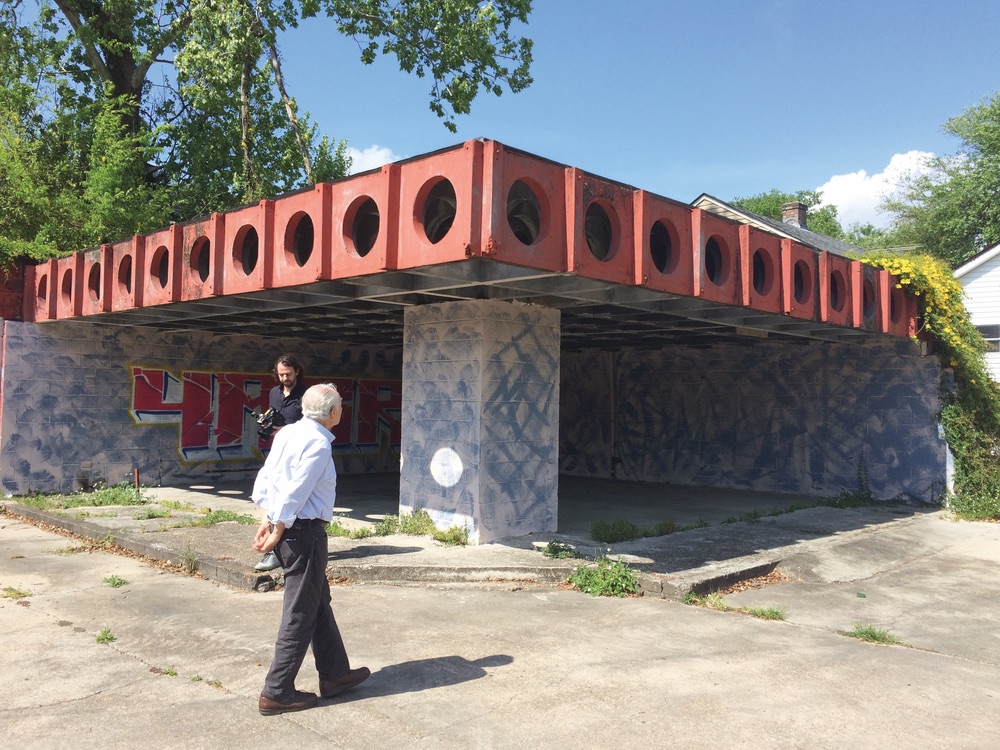
Albert visiting what’s left of the structure he built on Simon Bolivar Avenue in New Orleans
How does this all lead up to the documentary? “As an adult, I have looked back at my father, his life’s work, and his positive and never-wavering attitude towards life, and I stand back with love and admiration,” Catherine says. “Designing Life: The Modernist Legacy of Albert C. Ledner is a thorough exploration of my father’s life and work. We trace his early influences growing up in New Orleans and his experience at Tulane University, in World War II, at Wright’s Taliesin, and during the postwar era in New Orleans, New York, and Taliesin East.”
Although Catherine and Beeson are cousins, Catherine explains that they didn’t meet until she was in her forties and Beeson in his thirties, as Roy grew up in Atlanta. The pair connected instantly upon meeting over a shared love of photography, and although Beeson is a cousin on Catherine’s mother’s side of the family, he knew of Ledner’s work long before meeting the man himself.
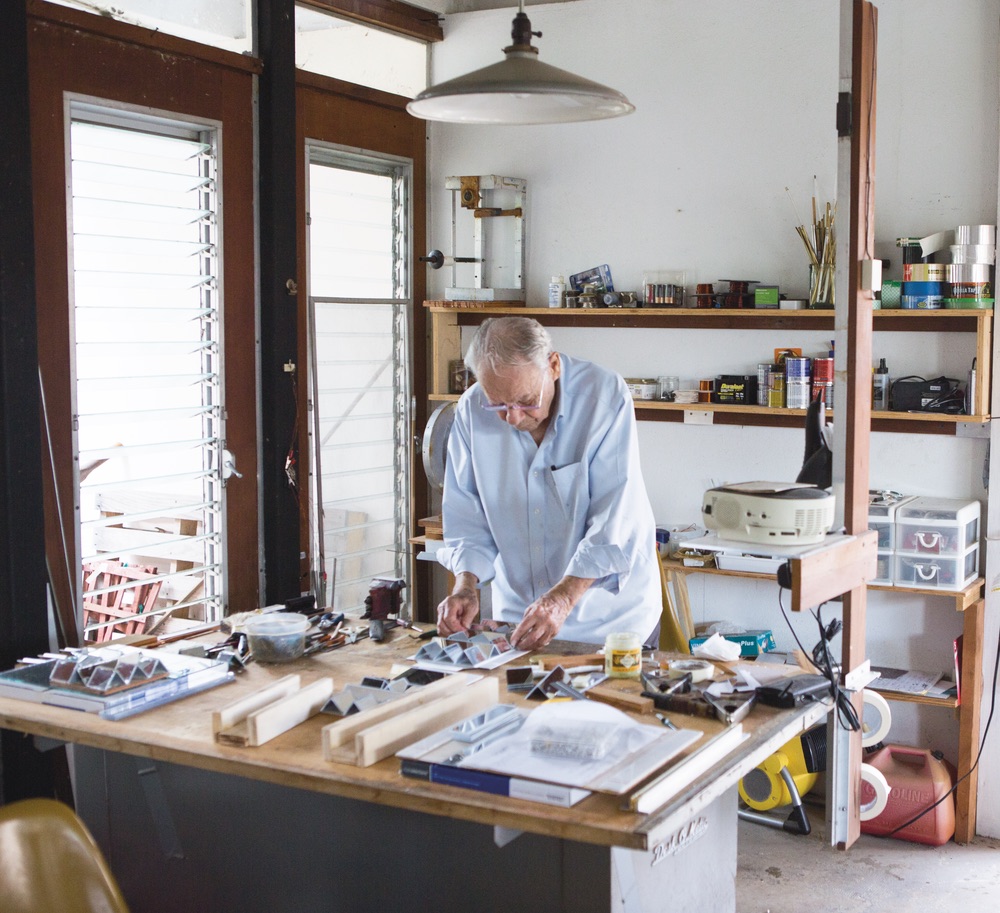
Albert working on his mirror sculptures in his workshop.
“When I was a child, my mother told me about her father’s first cousin’s husband, who studied with Frank Lloyd Wright and had designed an octagon-shaped house that my mother visited,” Beeson says. “Later, in my early twenties, while walking to the Chelsea galleries in New York City, I looked up and was amazed to see the slanted building on Seventeenth Street with an array of portholes. I took photographs of the building and traced it around the block. A few weeks later, I looked up the building at the library and found that it was designed by Albert Ledner.”
When Beeson visited the city in 2014 to cover Prospect.3: Notes for Now, the third installment of Prospect New Orleans’s contemporary art biennial, Catherine encouraged him to call her father to arrange a meeting and a tour of his home during the trip. “They met, and the rest is history,” says Catherine. “I had always wanted to make a film about my father but didn’t want to tackle such a weighty endeavor on my own. Roy was so touched and inspired upon spending time with my father that he readily joined in and said, ‘Let’s do it together.’”
I’ve always come away from my visits with Albert with a buzz that one feels when you have your mind opened and expanded and view the world from a new perspective.
“I’ve always come away from my visits with Albert with a buzz that one feels when you have your mind opened and expanded and view the world from a new perspective,” Beeson shares. “I’ve been especially taken by Albert’s openhearted way of embracing the world and everyone around him. Albert’s life now inspires me as he actively works on inventions and thinks of new ideas, very much aware of the ever-changing world around him. He lives his life through the mind of an architect and actively engages in the world of designing environments and contexts for life to be lived fully.”
With help from family and friends, as well as their editing team and the fund-raising efforts on Kickstarter, Catherine and Beeson are proud to have the opportunity to share Ledner’s work with the world. Ledner himself is thrilled to be the subject of their documentary.
“Artists and writers are always on the lookout for a compelling story, and especially one that might have escaped larger notice,” Beeson confides. Sharing a historically significant movement through the eyes and life of an individual provides a unique context for viewers, and according to Beeson, Ledner is the perfect subject. “He is articulate, funny, humble, and giving, and his work has a beautiful singularity.”
— V —
Fans of modernism should keep an eye out for the film’s debut this year and can learn more about the project by searching “Albert C. Ledner” on Kickstarter.com.
Share This Story!
KEEP UP WITH THE LATEST STORIES FROM VIE



